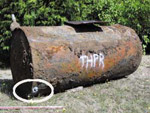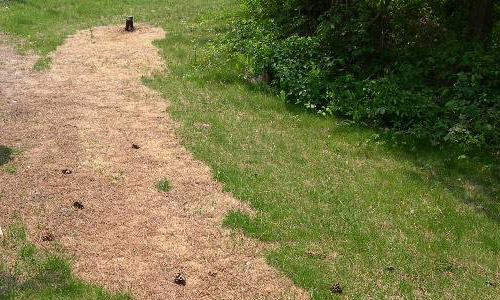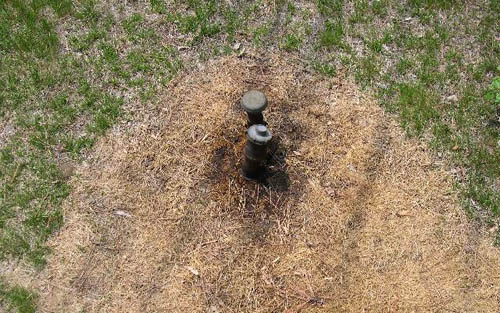Home Fuel Oil Recovery Program
 HOME FUEL OIL REMOVAL FOR VOLUSIA COUNTY RESIDENTS
HOME FUEL OIL REMOVAL FOR VOLUSIA COUNTY RESIDENTS
In 1987, the Environmental Protection Agency ranked all Florida counties as having the highest possible risk of groundwater pollution because the aquifer is relatively shallow and permeable. One gallon of oil leaked into the aquifer can pollute as much as one million gallons of groundwater. Home heating fuel or oil, like other petroleum products, accidentally discharged from leaking underground or above-ground residential tanks is a major source of groundwater pollution.
The Solid Waste Division offers the removal of home fuel oil FREE to all Volusia County residents. You can help to protect your water supply by calling our office today and arranging for our staff to pump out your tank. Please call us at:
386-943-7889 in West Volusia
386-257-6021 in the Daytona Beach area
386-423-3862 in Southeast Volusia
Quick facts
- Thousands of rusting, deteriorating home fuel oil tanks have been left in the ground in Volusia County, and many homeowners are unaware of their presence.
- These tanks often are filled with 10 to 250 gallons of old heating oil.
- One gallon of oil can pollute up to one million gallons of water.
- Volusia County’s Solid Waste Division will remove old heating oils from homes FREE.
What to look for in your yard

- Are there two pipes about 6” to 10” apart near your home? They may be beside your heat pump.
- Is part of your yard withering, or are a lot of plants dying in one area?
- Has your contractor found a below-ground tank with pipes cut off in your yard?
If so, please call us for safe removal of oil.

Instructions and agreement
Our goal is to remove abandoned home fuel oil from all known tanks. This effort is so important to the protection of Volusia County’s aquifer and environment, we will remove the oil FREE.
Once you have determined you need fuel oil removed from your tank, please call one of these numbers to schedule an appointment:
386-943-7889 in West Volusia
386-257-6021 in the Daytona Beach area
386-423-3862 in Southeast Volusia
You also will need to complete an agreement form. Please click on the link below, print out the page, fill it out completely, and fax it to 386-947-2955 or mail it to:
Home Fuel Oil Recovery Program
1990 Tomoka Farms Rd.
Port Orange, FL 32128
HFO agreement
Removal or disposal of tanks
|
Below-ground tanks |
|
|
The tank can be dug up and disposed of by an excavating contractor for a fee. This is the best method because it is permanent. If this is not economically feasible, pour a bag of Oil Dry or an equivalent product into the tank to absorb the oil residue. Then fill the tank with sand or dirt. This will prevent the tank from coming out of the ground during a major storm and forming a minor sink hole after the tank decomposes. |
|
|
A 150-gallon tank will require about 1.25 cubic yards of sand or fill dirt. |
|
Do not fill the tank with water or other liquid because the oil will float up and out of the tank. Also, a leak may form, causing the liquid to leak into the ground and create a minor sink hole.
Above-ground tanks
The Tomoka Landfill will accept empty, cleaned fuel tanks for a nominal fee. One end of the tank must be totally cut off, and holes must be punched in the other end. It is recommended you use a grease-dissolving agent (such as Dawn) to clean the tank.
A private contractor may remove an unclean tank for a service fee.

